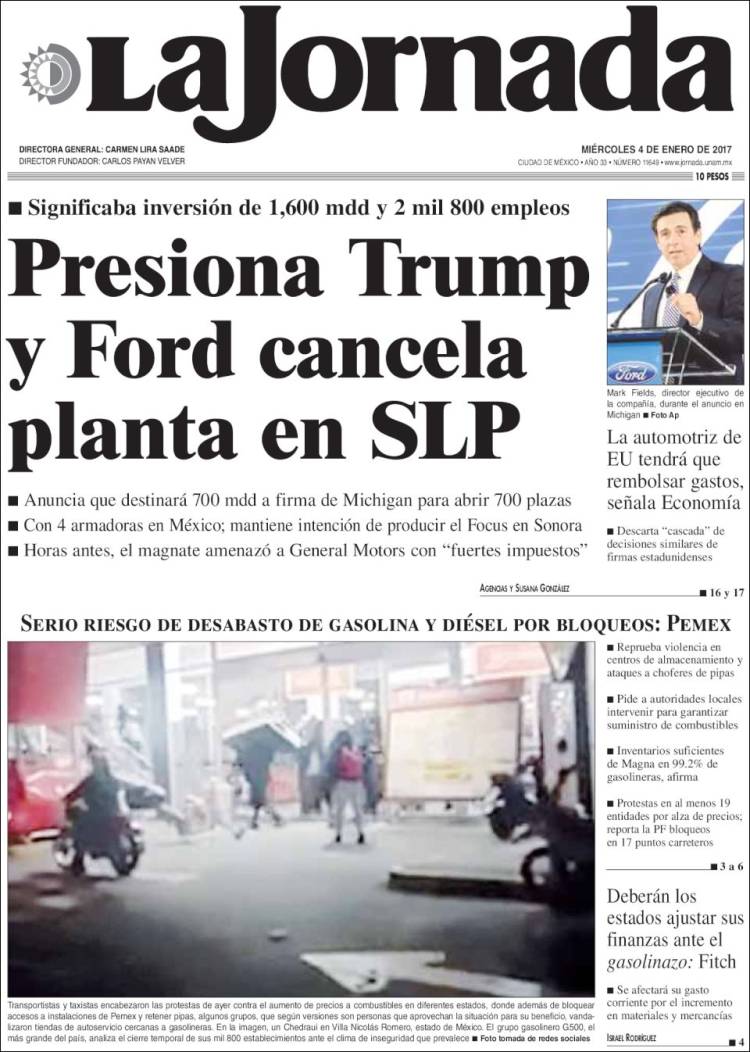The Ford Motor Company's decision not to open an auto plant in Mexico — in a swift reaction to Donald Trump's offhand threat to slap tariffs on all imported vehicles — is another sign that when the president-elect tweets, people pay attention. It's also a reminder that Trump doesn't need to build a wall to hit Mexicans where it hurts.
The announcement Tuesday that Ford would scrap the $1.6 billion factory in favor of investing in the state of Michigan is the clearest indication that Trump's tough talk about curbing free trade in the NAFTA zone to "save" U.S. jobs can turn to action. Mexicans, for their part, are recognizing that the stakes of the coming U.S. protectionist approach are particularly high for them. Besides pushing down the peso, the pending Trump presidency may have longer-term, dismal effects on the country's jobs and investment panorama.
Mexico City-based daily La Jornada splashed a front-page "Trump Pressure" headline on the front page Wednesday:
In San Luis Potosí, where the plant was to be built, Jaime Chalita, local head of the COPARMEX business owners association, told El Universal newspaper that Ford's decision is "very bad news for the economy." The move is particularly disappointing, he pointed out, as it coincides with a sharp hike in gasoline prices. The price increase sparked nationwide protests in recent days, local news sources reported.
A more vigorous reaction came from Sen. Miguel Barbosa of the leftist Democratic Revolution Party, who said the plant cancelation clearly indicated Trump's hostility to Mexico. He urged the government to take a "firm, strategic" stance on Trump and treat him "for what he is, an enemy of Mexico," Milenio reported on Jan. 4. "This is a sample of what a Trump presidency will mean for our economy, jobs and people's incomes," Barbosa said.
Sen. Gabriela Cuevas of the conservative National Action Party, in contrast, urged people not to "overreact." He also predicted that U.S. consumers will "protest" when they start having to pay more for their cars. Former Mexican president Felipe Calderón (2006-2012) concurred, tweeting that such moves would harm U.S. consumers and make their country less competitive.
See more from Business / Finance here






